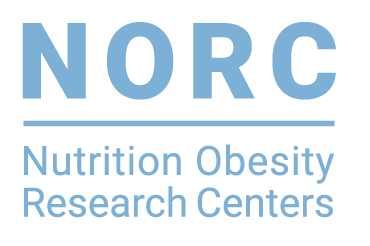
Anxiety and anxiety-related disorders are the most common mental health problem in the United States, with obese people having higher rates of anxiety than non-obese people. Data from a recent study reveal that this increased anxiety may be caused by an interaction between obesity and a very common human infection, which results in immunological changes in the brain.
Patricia Sheridan, PhD, research assistant professor of nutrition at the UNC Gillings School of Global Public Health, has worked for years to determine how diet alters inflammatory processes in the brain.
As the senior author of the study “Diet-induced obesity prolongs neuroinflammation and recruits CCR2+ monocytes to the brain following herpes simplex virus (HSV)-1 latency in mice,” published online June 13 by the journal Brain, Behavior, and Immunity, Sheridan investigated the effect of obesity on the brains of mice that were latently infected with the herpes simplex virus.
This virus – also known as (HSV)-1 – is an infection that most humans harbor in a latent state. It principally causes cold sores and is especially prevalent in obese populations.
On its own, obesity has been linked to increased brain inflammation, greater susceptibility to infection and higher rates of anxiety disorder.
To test whether obesity affects brain inflammation any differently following infection with (HSV)-1, the investigators infected mice with the virus. The mice were then allowed to recover from the infection before being placed on either a low- or high-fat diet for eight weeks.
At the end of the study period, latently infected mice on the high-fat diet had higher levels of brain inflammation compared with both latently infected mice on the low-fat diet and uninfected mice on both diets.
The researchers also found that the group of infected mice on the high-fat diet demonstrated increased anxiety-like behavior.
“This increase in anxiety is likely a result of a significant amount of inflammation paired with the presence of a specialized immune cell, called a macrophage, in a specific region of the brain associated with anxiety,” said Sheridan. “This finding is important because it provides a possible target for therapeutic treatments down the road.”
This study augments a growing body of literature on the effects of obesity on the brain and behavior in both mice and humans. While researchers already were aware that obesity is linked with higher rates of anxiety, the finding that a highly common disease can further boost anxiety-like behaviors in obese populations is significant for the field of public health.
Citation:
- White KA, Hutton SR, Weimer JM, Sheridan PA. Diet-induced obesity prolongs neuroinflammation and recruits CCR2(+) monocytes to the brain following herpes simplex virus (HSV)-1 latency in mice. Brain Behav Immun. 2016 Oct;57:68-78. PMID: 27311830.
Read More: Brain, Behavior, and Immunity
###
The UNC Gillings School of Global Public Health is consistently recognized as a leading public health school. The School is ranked as the top public school of public health in the nation by U.S. News & World Report (2016 edition) and placed second among all public health schools.
Research Details
- Research Center: University of North Carolina at Chapel Hill
- Featured NORC Member(s): Patricia Sheridan, PhD, Research Assistant Professor of Nutrition
- Center Contribution: This research is an extension of Dr. Sheridan’s P and F funding from the NORC. She uses the Metabolic Molecular Phenotyping Core’s RT-PCR instrumentation for all of her studies of high fat diets and neuroinflammation.

